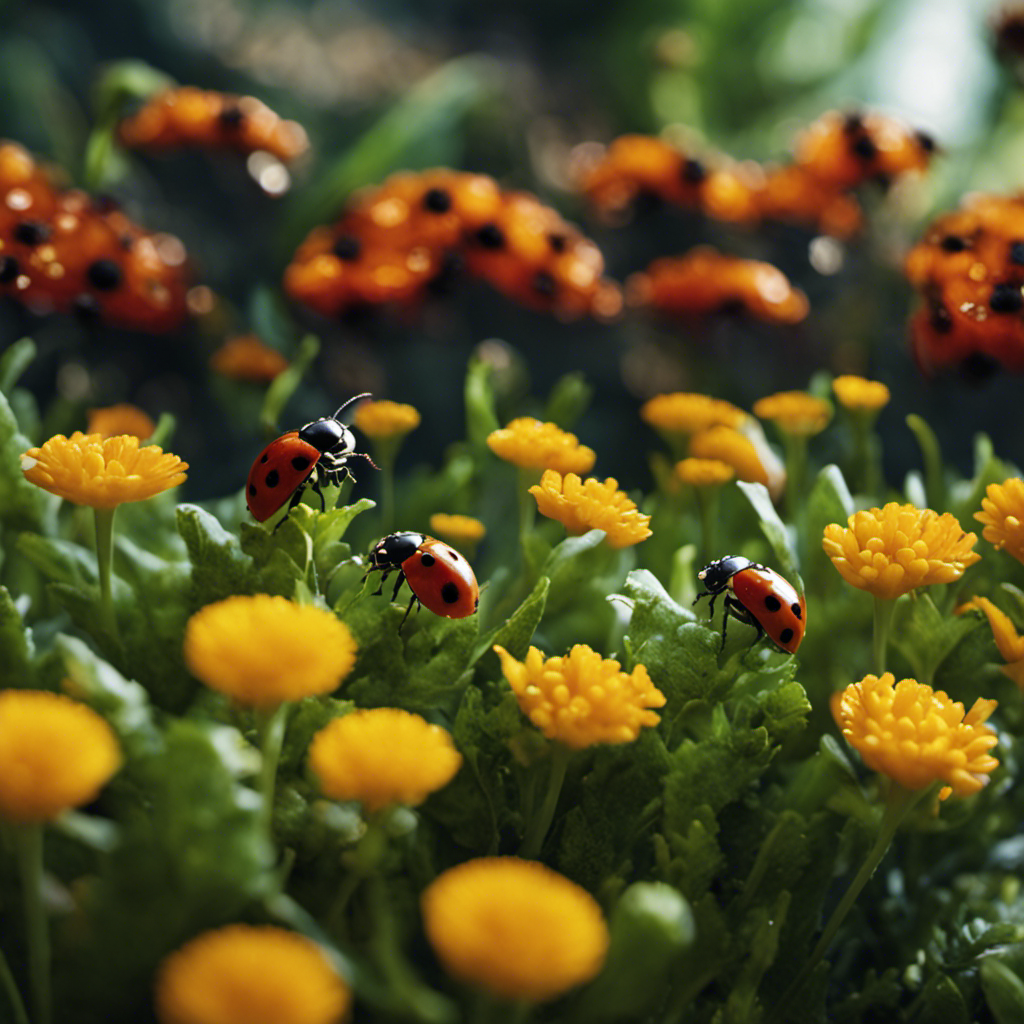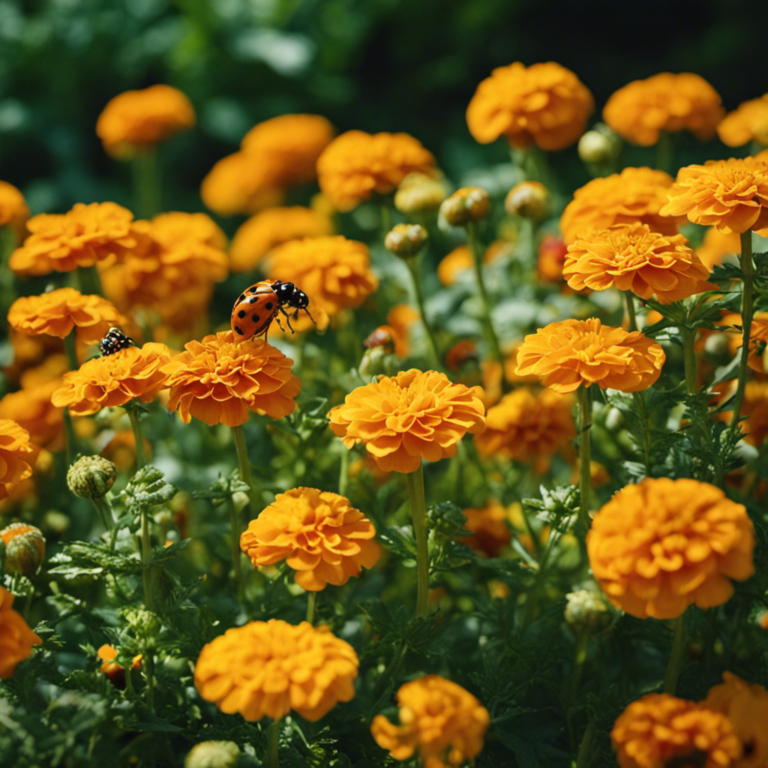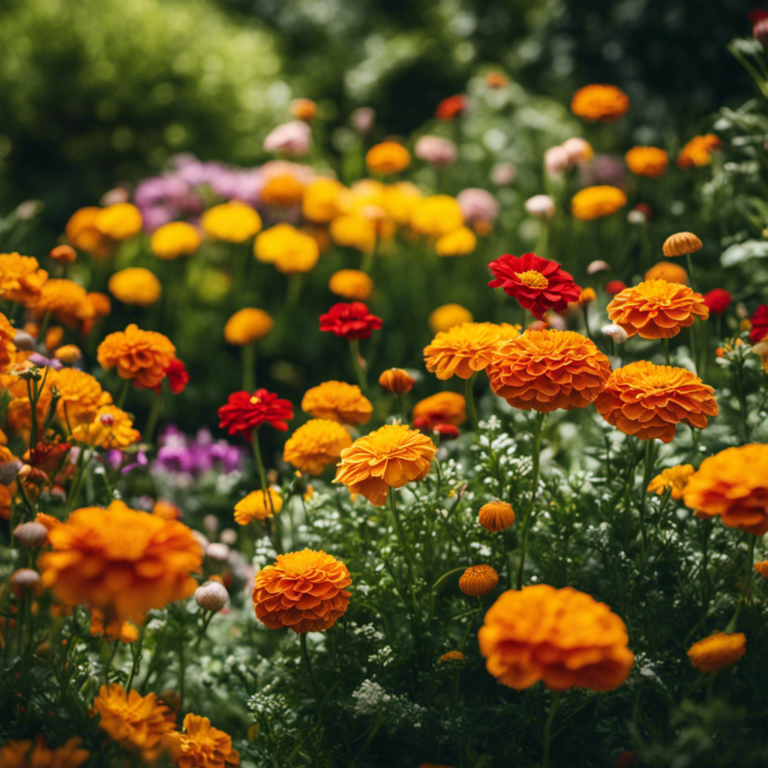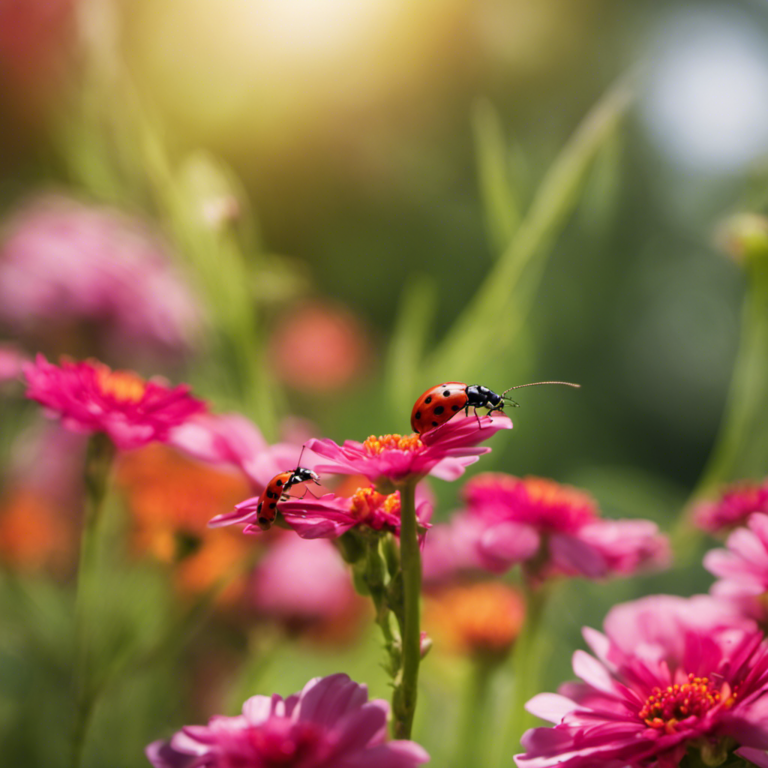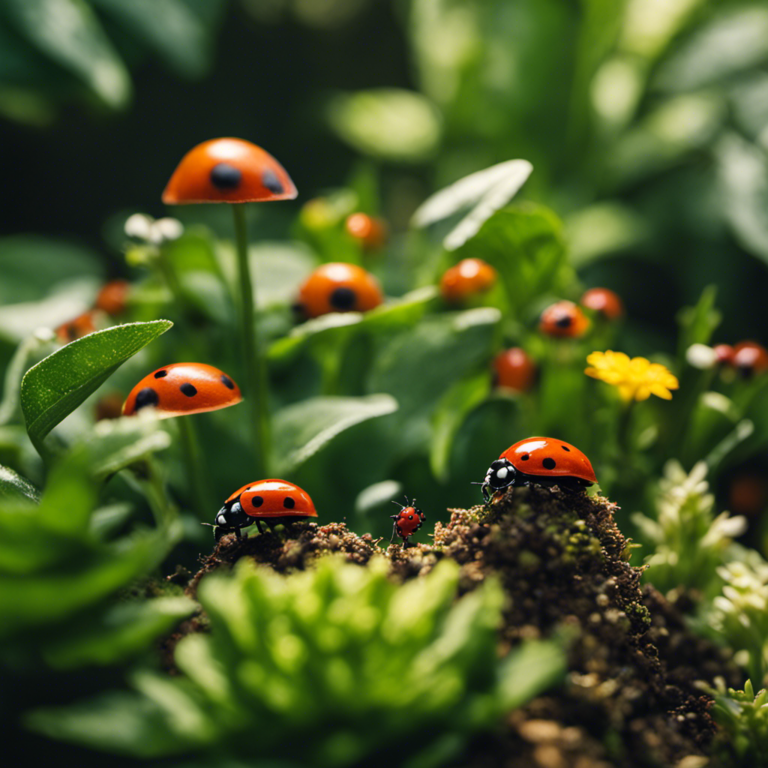Is your edible garden under attack from pesky pests? Don’t worry, there are safe and effective ways to protect it. But where do you start? How can you ensure your garden stays healthy and thriving?
In this article, we will provide practical tips and tricks to safeguard your garden from unwanted intruders. We will explore natural pest repellents, beneficial insects, and essential oils that can help you reclaim your garden and enjoy the fruits of your labor.
Let’s dive in!
Key Takeaways
Protecting your edible garden from pests can be easily achieved using safe and natural methods. Instead of relying on harmful chemicals, you can try using homemade pest control solutions, attracting beneficial insects, using essential oils, and practicing companion planting.
For example, in California, a gardener successfully repelled aphids from their tomato plants by planting marigolds nearby. The strong scent of the flowers acted as a natural deterrent for the pests.
By using these methods, you can maintain a thriving and pest-free garden throughout the season.
Natural Pest Repellents
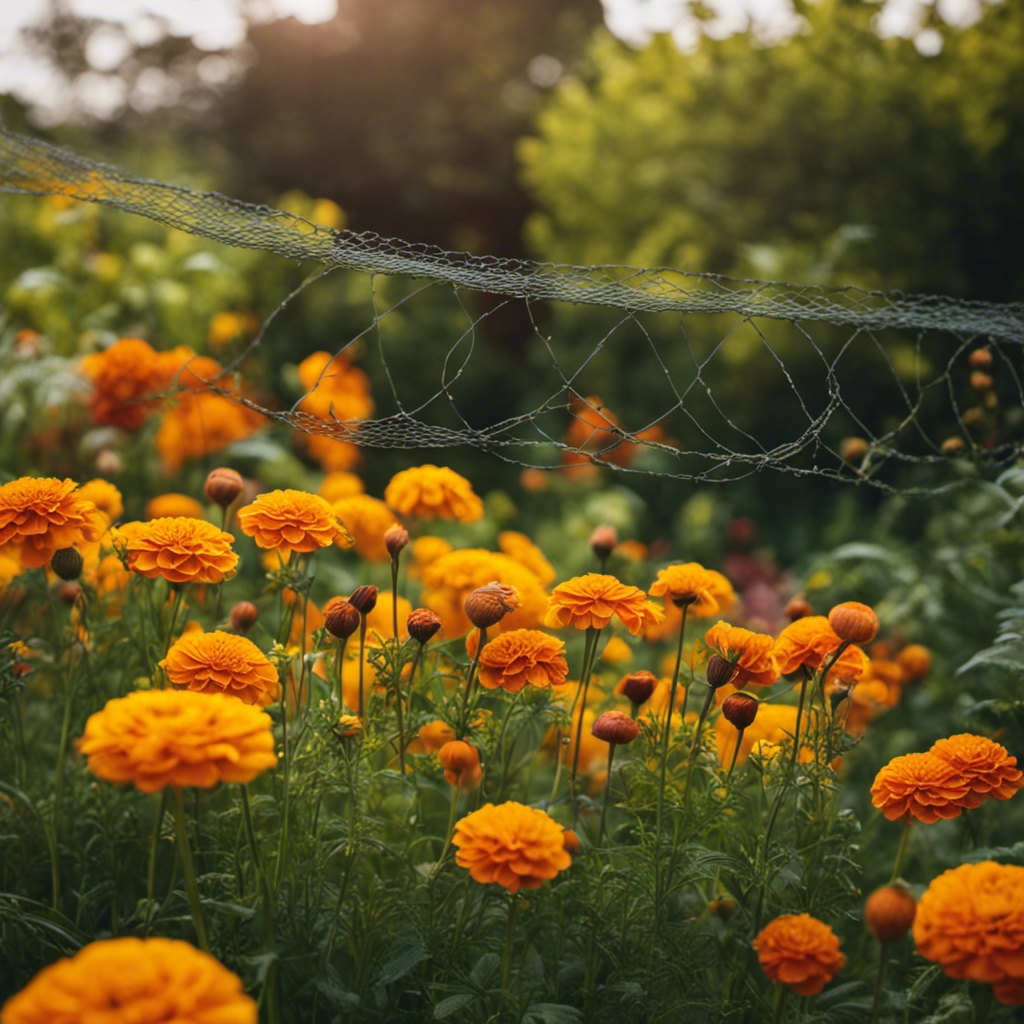
Protect your edible garden from pests naturally by using safe and effective repellents. Organic pest control and non-toxic deterrents are the way to go when it comes to keeping your garden healthy and thriving.
One option is companion planting, where you can plant certain plants together to repel pests. For example, marigolds can deter aphids and nematodes when planted near vegetables.
Another natural approach is making homemade pest sprays using ingredients like garlic, chili peppers, and soap. These sprays can be directly applied to plants to repel insects.
Additionally, you can use physical barriers such as row covers or netting to protect your plants from larger pests like birds or rabbits.
Homemade Pest Control Solutions
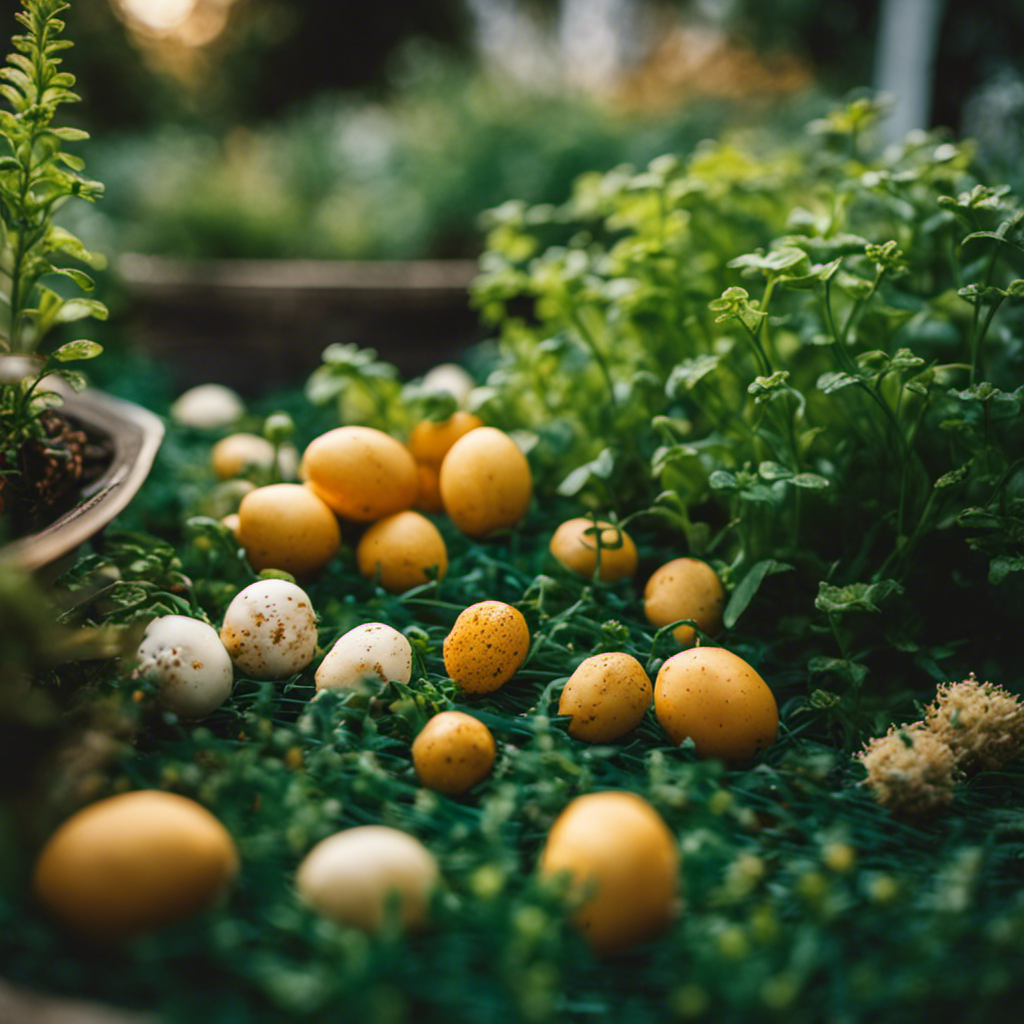
Effective Homemade Pest Control Solutions for Your Edible Garden
If you want to keep pests away from your edible garden without using harmful chemicals, creating your own homemade pest control solutions is the way to go. DIY pest traps and organic pest prevention methods are simple yet effective ways to protect your plants.
One easy homemade pest control solution is a vinegar spray. To make it, simply mix equal parts of water and vinegar in a spray bottle. Apply this mixture to plants that are being attacked by insects. The acidic nature of vinegar helps repel pests and keep your plants safe.
Another option is to create a homemade insecticidal soap. All you need to do is mix a tablespoon of liquid dish soap with a quart of water. This solution can be sprayed directly onto pests to kill them on contact. It’s a safe and natural way to combat unwanted insects.
In addition to sprays, you can also make DIY pest traps using materials like beer or apple cider vinegar. These traps attract pests and prevent them from causing damage to your plants. Simply place the traps near your garden, and they’ll do the work for you.
Beneficial Insects for Pest Management
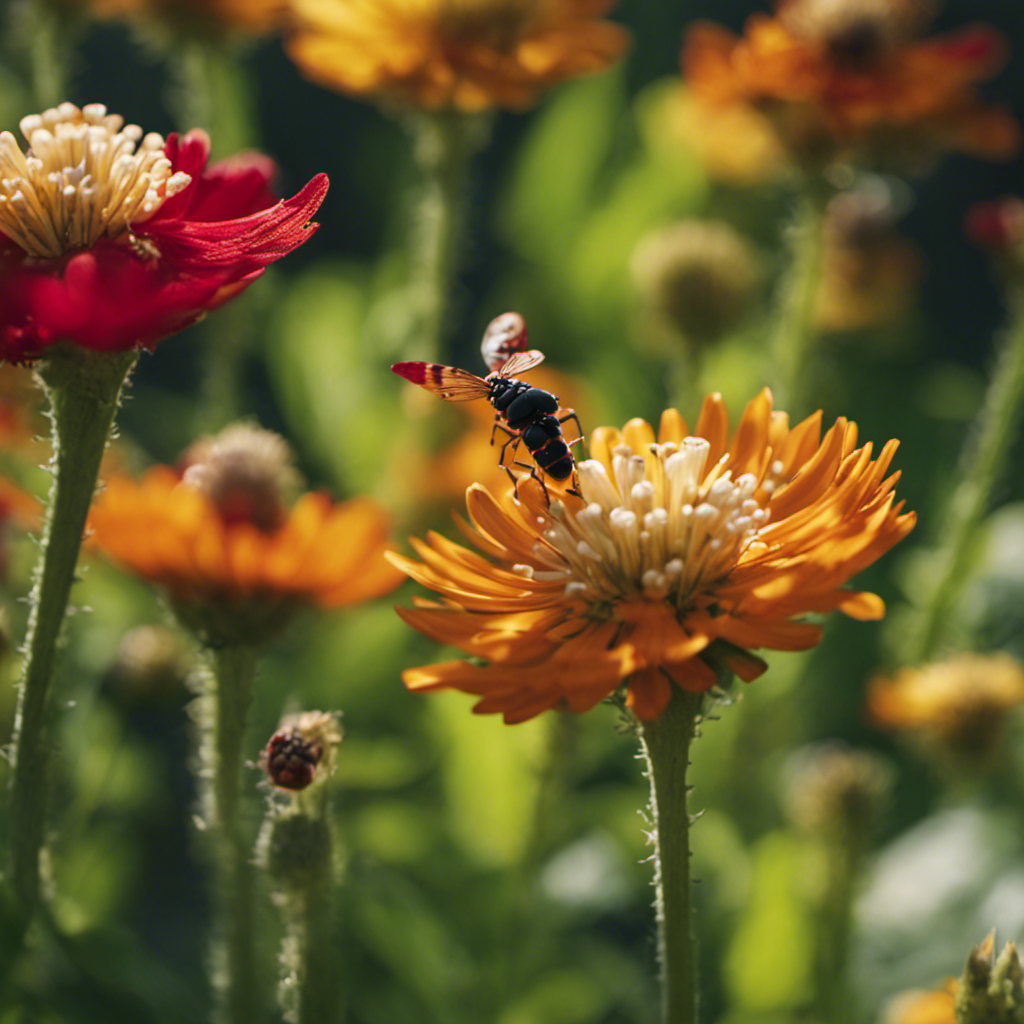
To effectively manage pests in your edible garden, you can harness the power of beneficial insects. These small allies offer natural pest control solutions without the need for harmful chemicals.
Ladybugs, for instance, are voracious predators of aphids, which can cause significant damage to your plants. By attracting ladybugs to your garden, you can keep aphid populations in check and maintain the overall health of your crops.
Another beneficial insect worth considering is nematodes. These microscopic organisms can be applied to the soil to target and eliminate soil pests like grubs and caterpillars. Nematodes work by releasing bacteria that infect and kill pests, effectively reducing their numbers.
Essential Oils for Pest Deterrence
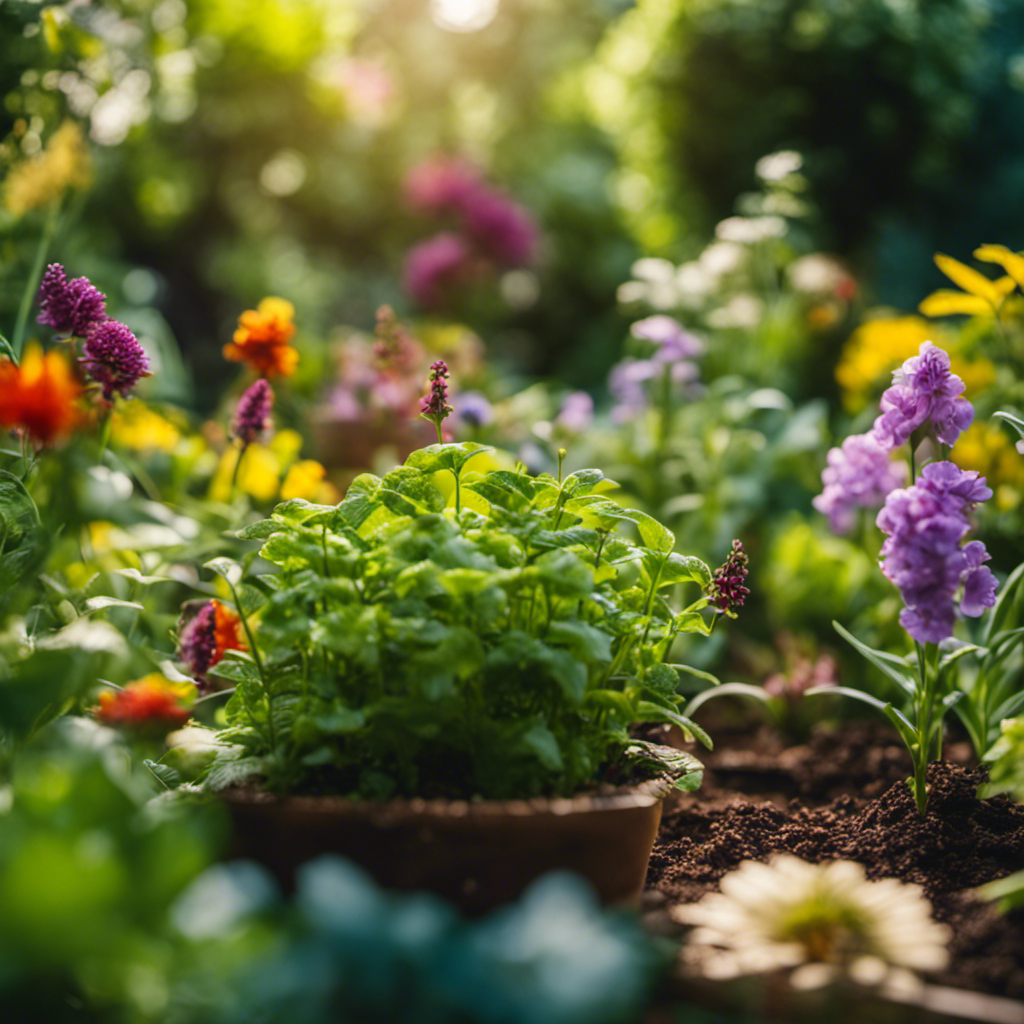
Using essential oils is a natural and effective way to protect your edible garden from pests. These oils have been used for centuries and are known for their ability to repel insects. Peppermint, lavender, lemon, and eucalyptus are some popular essential oils that can deter pests.
What’s great about essential oils is that they’re safe, non-toxic, and environmentally friendly. You can easily incorporate these oils into DIY pest control recipes like sprays or diffuser blends. By harnessing the power of essential oils, you can keep your plants healthy and enjoy a bountiful harvest without resorting to harmful chemicals.
Companion Planting for Pest Control
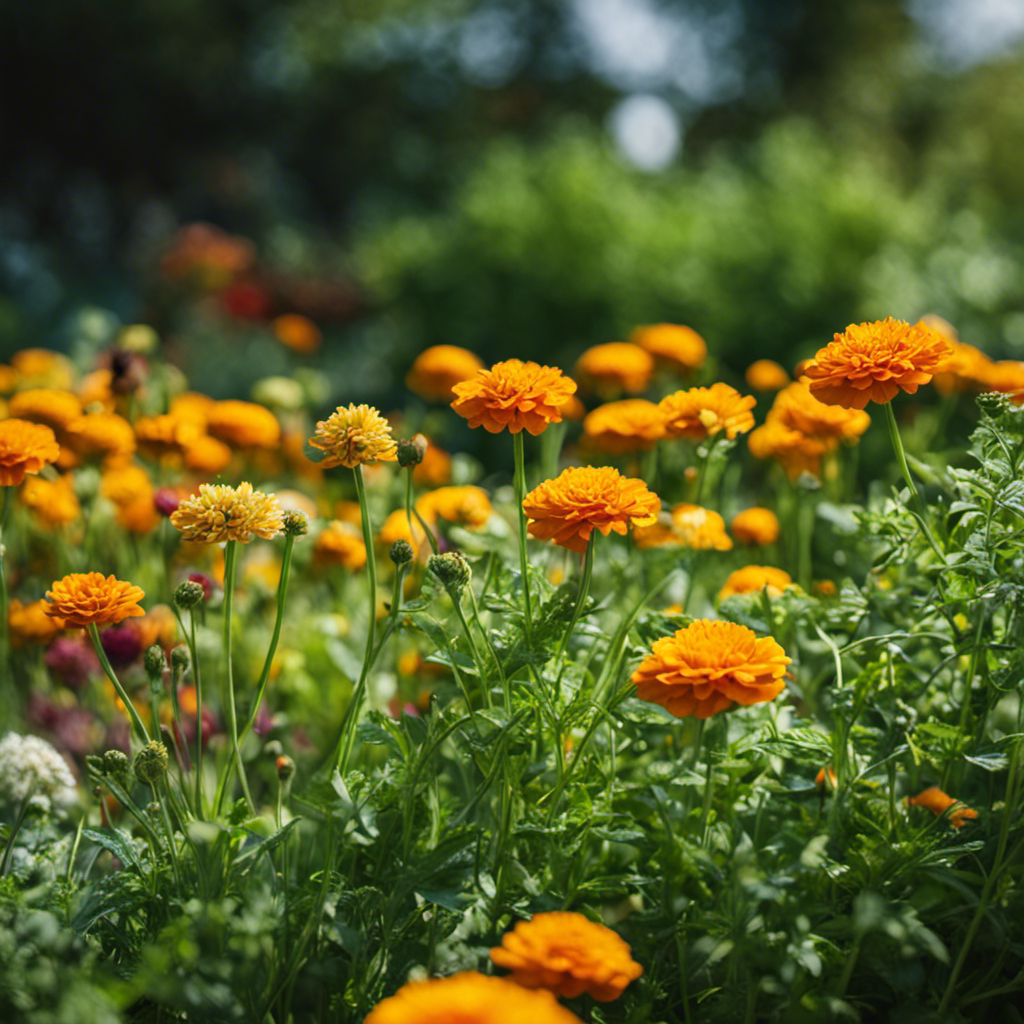
Companion Planting for Pest Control
Now, let’s explore the benefits of incorporating companion planting as a way to control pests in your edible garden.
Companion planting is an organic technique for managing pests. It involves planting specific plants together to deter pests, attract beneficial insects, and promote overall garden health.
By strategically placing certain plants next to each other, you can create a natural pest repellent system. For example, planting marigolds alongside your vegetables can discourage aphids and nematodes, while also attracting helpful insects like ladybugs.
Similarly, planting herbs like basil, parsley, and dill near your tomatoes can repel pests like tomato hornworms and aphids.
Conclusion
Protecting your edible garden from pests can be easily achieved using safe and natural methods. Instead of resorting to harmful chemicals, you can try using homemade pest control solutions, attracting beneficial insects, using essential oils, and practicing companion planting.
For instance, in California, a gardener successfully repelled aphids from their tomato plants by planting marigolds nearby. The strong scent of the flowers acted as a natural deterrent for the pests.
By employing these methods, you can maintain a thriving and pest-free garden throughout the season.
